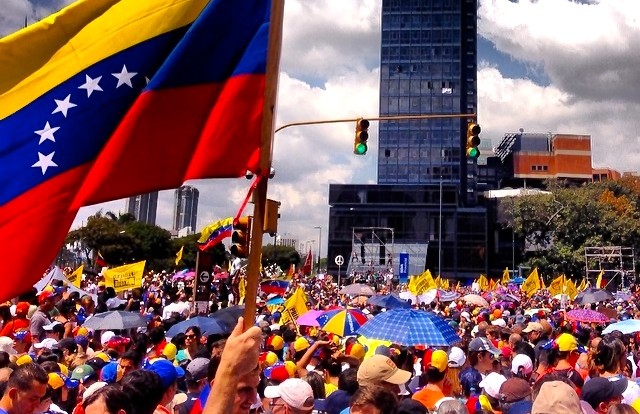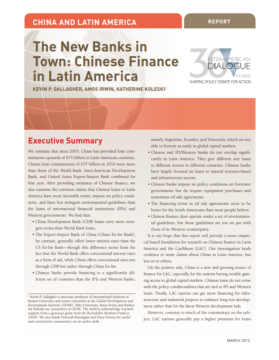Hugo Stay Home
Hugo Chavez, the Venezuelan president, has clearly been enticed by the Libyan drama, where his longtime friend and ally, Muammar al-Qaddafi, is under siege from rebel forces.
This post is also available in: Español
Following the arrest by Venezuelan intelligence police of Caracas mayor and opposition figure Antonio Ledezma on February 19th, some newspaper accounts noted that president Nicolas Maduro had “crossed a line” that separated what had been a popular, constitutional government from what today can be considered a military regime. In fact, that line had been crossed some time ago, during the 14 years of Hugo Chavez’s rule.
Still, there is little doubt that Venezuela’s crises have multiplied and become more serious since Chavez’s death nearly two years ago. The Ledezma case – the mayor was arrested without warrant and charged without evidence for organizing a coup – reveals the regime’s desperation and its intent to distract attention and instill fear. By now, the list of acute problems is familiar – high inflation, widespread shortages, rampant crime, and uncontrolled corruption. The inability of the Maduro government to take corrective measures is clear.
In light of Venezuela’s complex and uncertain situation, predictions are risky. It is tempting to say Maduro’s days are numbered, especially if oil prices continue to drop. But it is also possible that he will remain president for some time, perhaps until his term ends in 2019. The opposition has often been criticized too harshly – it is not easy being an opposition under such authoritarian conditions – but it has not come up with a credible alternative to current government policies.
The regional reaction to the egregious violations amply documented by such groups as Human Rights Watch has been too little and too late. Recently, especially after the Ledezma arrest, the prolonged imprisonment and mistreatment of opposition leader Leopoldo Lopez, and the February 24 assassination of a 14 year-old bystander at a government protest by a police officer (under arrest), there have been expressions of concern coming from Chile, Colombia and Brazil.
Latin American governments are worried about the deteriorating Venezuelan situation, but effective multilateral diplomacy has been difficult and disappointing. Even mild criticisms of the human rights situation have elicited an aggressive response from the Maduro government. It is unclear whether more severe criticisms would be more effective.
There is, however, little excuse for failing to take a stronger public stand on the steady erosion of any democratic safeguards in Venezuela. In Venezuela, the OAS’s Inter-American Democratic Charter failed its most fundamental test. There is virtually no political will for member governments to act together to press the Maduro government to meet its basic obligations.
Beyond expressions of concern and vague calls for resumption of dialogue between the government and opposition, UNASUR, too, has not responded effectively to the Venezuela challenge. Whether the announced visit of the foreign ministers of Colombia, Ecuador and Brasil will be able to accomplish very much is a big question.
Colombian president Juan Manuel Santos’s offer to mediate between the government and the opposition is welcome and well-intentioned, but it is hard to imagine Maduro will accept it. And Santos has to be careful due to Venezuela’s key role in the peace process between the government and the FARC.
In Latin America, Brazil and Chile may be best-positioned to apply increased diplomatic pressure and play an effective role in making sure that Venezuela’s increasingly dire crisis does not get out of control. Even under an optimistic scenario, it will take many years for the country to recover from its decay. But at least it is possible to prevent the worst from happening.
Hugo Chavez, the Venezuelan president, has clearly been enticed by the Libyan drama, where his longtime friend and ally, Muammar al-Qaddafi, is under siege from rebel forces.
Estimates of the volume, composition, and characteristics of Chinese lending to the region since 2005.
Is the Venezuelan government likely to comply with the IACHR’s ruling or will it uphold the ban?
 DURDANETA / CC BY 2.0
DURDANETA / CC BY 2.0
